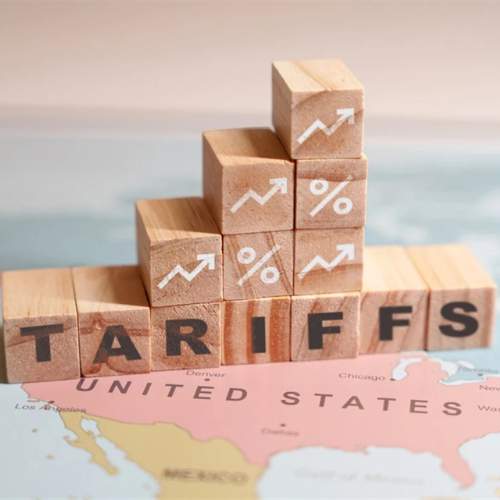In a major legal blow to President Donald Trump’s trade strategy, a U.S. federal court has ruled that his administration acted unlawfully when it imposed sweeping global tariffs. The U.S. Court of International Trade declared that Trump did not have the authority to use emergency powers under the law he cited—known as the International Emergency Economic Powers Act (IEEPA)—to justify the tariffs announced on April 2.
Court Rules Against Tariff Orders
The ruling came in response to two separate legal challenges: one filed by small businesses, including New York-based wine importer VOS Selections, and another led by 12 U.S. states, with Oregon taking the lead. The court found that the executive orders Trump issued to activate these tariffs “are declared to be invalid as contrary to law.” The panel of judges emphasized that these so-called “Worldwide and Retaliatory Tariff Orders” went beyond what any statute allows the president to do.
President Trump had claimed that America faced an “unusual and extraordinary threat” due to trade practices by other nations, including unfair wages and lack of reciprocal trade. He declared a national emergency and imposed tariffs starting at 10%, with higher “reciprocal” rates on some countries. However, the court concluded that those justifications did not give him legal power to unilaterally change import taxes on such a wide scale.
Trump’s Sanctions on WilmerHale Collapse Under Judicial Ruling
Market Reaction and Legal Drama
The court’s decision led to a positive response in global markets. U.S. stock index futures surged, with the S&P 500 rising by 1.5%. European and Asian markets also went up, as investors responded positively to the potential end of disruptive tariffs. Japan’s Nikkei 225 rose by 1.8%, and the Hang Seng in Hong Kong gained 0.9%. South Korea’s Kospi matched Japan’s rise at 1.8%, while Taiwan’s Taiex remained mostly unchanged.
During the hearings, government lawyers defended the president’s actions. Department of Justice attorney Brett Shumate argued that an injunction on the tariffs would “completely kneecap the president” while he was negotiating trade deals globally. But Judge Jane Restani sharply replied that the court could not let a president do something the law doesn’t allow, even for political reasons.
In another hearing, government lawyer Eric Hamilton said the tariffs had already led some countries to come to the negotiating table. Restani quickly reminded him, “Don’t argue policy with the court, that’s not our business.”
The lawsuits against the tariffs claimed real harm. Businesses like VOS Selections said the duties raised their costs and disrupted trade. Meanwhile, Oregon and other states argued the tariffs would drive up prices on equipment and supplies needed for public services, putting additional pressure on budgets.
Trump to America: Build Power, Not Pants! Pushes Defense-Driven Industry
Political and Public Reactions
The White House immediately criticized the ruling. A spokesperson said, “It is not for unelected judges to decide how to properly address a national emergency.” The administration pledged to appeal the decision, stating that President Trump remains committed to using all executive tools to protect U.S. economic interests.
On the other side, political opponents of the tariffs applauded the judgment. Senator Ron Wyden of Oregon said Trump’s actions had twisted the Constitution and harmed American families and businesses. “Trump’s trade taxes jacked up prices on groceries and cars, threatened shortages of essential goods, and wrecked supply chains for American businesses large and small,” Wyden said.
Trump’s tariff strategy had caused weeks of market volatility earlier this year. While some of the more aggressive measures were later paused—such as a proposed 50% tariff on European Union goods—Trump has continued to pressure trade partners. He recently held talks with European Commission President Ursula von der Leyen and reached an agreement with China to temporarily lower some tariffs for 90 days.
Despite the temporary diplomatic moves, the court made clear that under the U.S. Constitution, Congress—not the president—holds the power to set tariffs. The judges determined that Trump’s use of emergency powers in this instance crossed a legal line.


